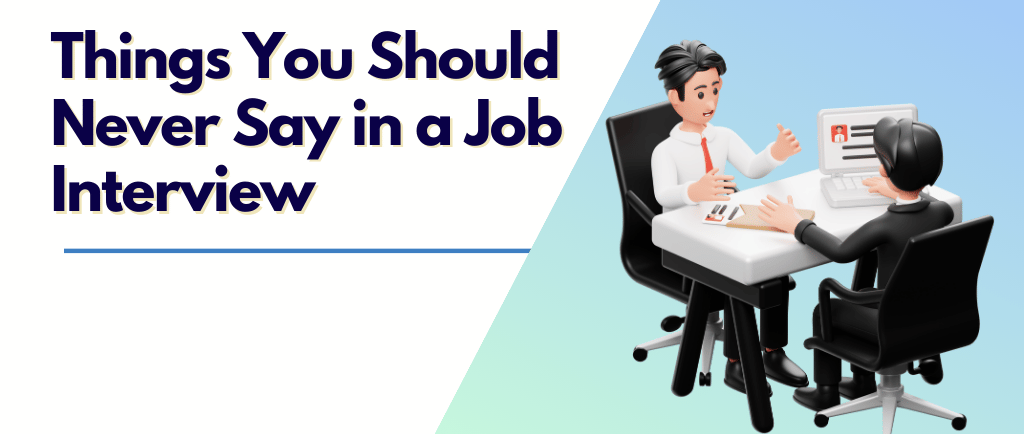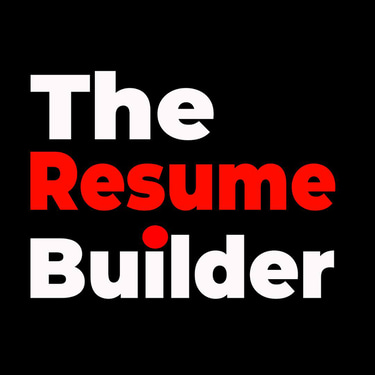Things You Should Never Say in Job Interview — And What to Say Instead
Abhishek Kundu
1/5/20253 min read


Job interviews can be challenging. Often, you have just 20 minutes to:
Highlight your strengths
Show your enthusiasm
Prove your fit for the role
The wrong words can derail your efforts, but the right ones can leave a lasting impression.
Here’s a guide to help you avoid common pitfalls and ace your interview:
1. Don’t Say: "I don’t have questions."
Why? It signals a lack of curiosity and preparation—red flags for employers.
Instead Say: "What would success look like in the first six months of this role?"
Scenario: Imagine the interviewer asks, "Do you have any questions for us?" and you respond with nothing. The conversation ends awkwardly. Instead, asking about success metrics keeps the conversation engaging and shows you’re focused on results.
2. Don’t Say: "I’m looking for any job right now."
Why? It makes you seem desperate rather than passionate about the role.
Instead Say: "I’m looking to use my skills in XYZ to contribute, and I’m excited about how this role aligns."
Scenario: Suppose the interviewer asks why you’re interested in the position. Instead of sounding unfocused, highlight your expertise in XYZ and connect it to the company’s mission.
3. Don’t Say: "I hated my last boss."
Why? Speaking negatively about past employers raises concerns about professionalism.
Instead Say: "I learned a lot in my previous job, especially about X, but I’m excited for a new challenge that fits my goals."
Scenario: An interviewer asks why you left your last job. Instead of venting frustrations, focus on personal growth and readiness for new opportunities.
4. Don’t Say: "I don’t know much about your company."
Why? It suggests poor preparation and lack of genuine interest.
Instead Say: "I’ve researched the company and I’m particularly impressed with X—could you share your perspective on it?"
Scenario: The interviewer asks what interests you about the company. Referencing specific achievements or values demonstrates preparation and curiosity.
5. Don’t Say: "How much does this job pay?"
Why? Focusing on salary too soon can make it seem like your primary motivation.
Instead Say: "I’m excited about this role, and I’d love to understand the compensation range to ensure it aligns with my expectations."
Scenario: When asked about salary expectations, balance excitement for the role with clarity about compensation expectations.
6. Don’t Say: "I don’t have weaknesses."
Why? It can come off as arrogant and lacking self-awareness.
Instead Say: "I’ve been working to improve X recently, and after taking Y steps, I’ve grown substantially."
Scenario: If asked about weaknesses, mention a skill you’ve actively worked on improving, like public speaking, and highlight the progress you’ve made.
7. Don’t Say: "I’m not great at time management."
Why? While honesty is good, this highlights flaws without solutions.
Instead Say: "Time management has been a focus for me. I now use X tools and Y techniques to stay organized and meet deadlines."
Scenario: If you struggled with deadlines before but adopted project management tools like Trello, share how it has transformed your efficiency.
8. Don’t Say: "I know I’m underqualified, but..."
Why? Undermining yourself detracts from confidence and competence.
Instead Say: "I’m excited to use my experience to lean into the challenges of this role and work hard to learn and grow quickly."
Scenario: If a job description lists skills you’re still developing, express enthusiasm for learning rather than focusing on shortcomings.
9. Don’t Say: "I was fired from my previous role."
Why? Whether fair or not, being fired often carries a stigma.
Instead Say: "My previous role ended unexpectedly, but it gave me the chance to reflect and strengthen my skills in X."
Scenario: When addressing employment gaps, focus on the lessons learned, such as taking courses or freelancing to improve relevant skills.
10. Don’t Say: "I don’t really have career goals."
Why? Employers want to see ambition and a desire to grow.
Instead Say: "My short-term goal is to excel in this role, and long-term, I aim to grow in X."
Scenario: If asked where you see yourself in five years, frame it as leveraging current strengths to evolve within the company.
11. Don’t Say: "When can I get promoted?"
Why? Ambition is good, but focusing too much on advancement may seem presumptuous.
Instead Say: "What does career growth look like here, and how are employees supported in reaching their potential?"
Scenario: When discussing growth opportunities, show curiosity about development programs rather than focusing solely on titles.
Final Thoughts:
Your words in an interview can either amplify your strengths or undermine them. Avoiding these common missteps ensures you present yourself as prepared, professional, and enthusiastic. Focus on showing growth, curiosity, and alignment with the role—and you’ll make a great impression!
Expert in
Professional Resume Writing Company in Kolkata, West Bengal
Professional Resume Writer in Kolkata, West Bengal
ATS Resume Writing in Kolkata, West Bengal
GET IN TOUCH
theresumebuilderindia@gmail.com
+91 89813 60947
© 2015. All rights reserved by Abhishek Kundu Resume Writing Co.
abhishek@atsresumewriting.in
